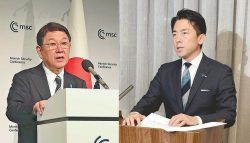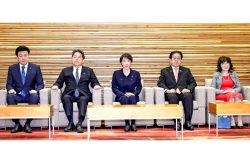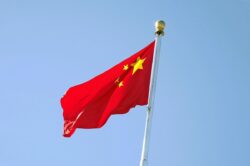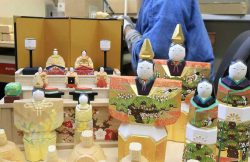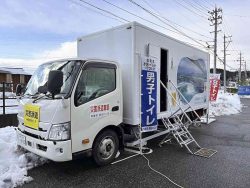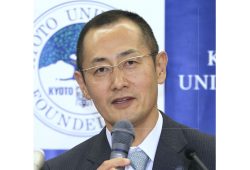Japan-China Summit: Ishiba, Li Agree to Promote Mutually Beneficial Ties; S. Korean Yoon Keen to Continue Reciprocal Visits
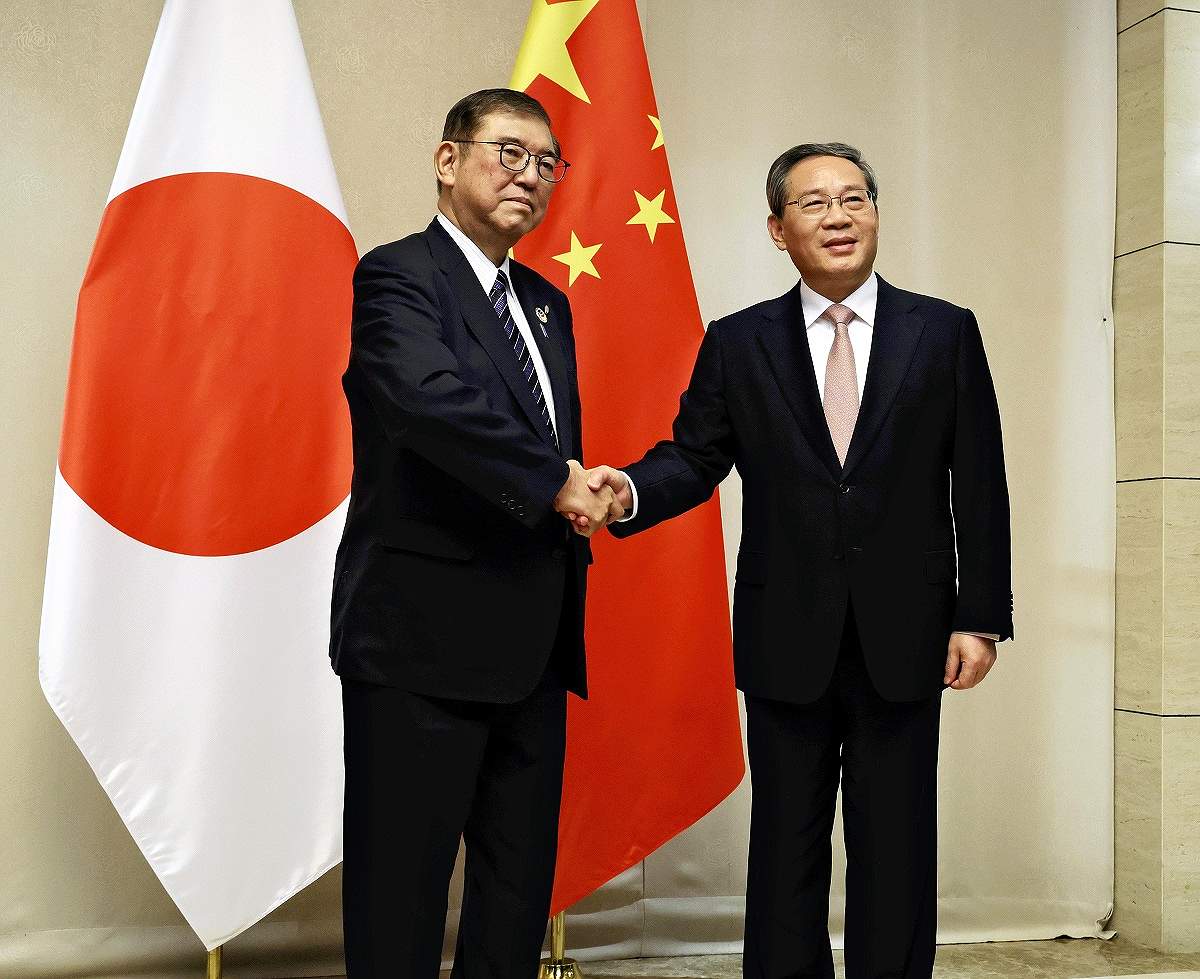
Prime Minister Shigeru Ishiba, left, shakes hands with Chinese Premier Li Qiang prior to their summit meeting in Vientiane on Thursday.
16:27 JST, October 11, 2024
VIENTIANE — Prime Minister Shigeru Ishiba made his diplomatic debut as Japan’s leader Thursday at a summit with the Association of Southeast Asian Nations and related meetings in Vientiane, conferring directly on the sidelines with leaders from China, South Korea and other nations.
Ishiba and Chinese Premier Li Qiang confirmed that their nations would promote a “mutually beneficial relationship based on common strategic interests” in which they cooperate to expand shared interests.
Ishiba has made building relationships of trust with other world leaders the main focus of his first overseas trip since becoming prime minister on Oct. 1.
“Japan and ASEAN have built a relationship of trust over half a century,” Ishiba said in remarks delivered at the separate ASEAN-Japan Summit in the Laotian capital. “I wish to convey our strong determination to strengthen it further.”
Ishiba also touched on promoting cooperation in maritime security and other fields in comments that were warmly received.
Ishiba also spoke about regional issues, referring to China’s repeated intrusions into Japanese territorial waters around the Senkaku Islands in Okinawa Prefecture when he stated, “Japan strongly opposes continuing and intensifying activities that infringe upon Japan’s sovereignty and provocative military activities in the East China Sea.”
Ishiba also expressed serious concern about “coercive activities” in the South China Sea.
In Ishiba’s meeting with Li later that day, pending bilateral issues were on the agenda. Ishiba told the Chinese leader that Tokyo and Beijing would “continue to proceed together on a broad path of comprehensively promoting a mutually beneficial relationship based on common strategic interests, and building constructive and stable bilateral relations.”
Ishiba urged the Chinese side to clarify the facts and prevent a recurrence of an incident last month in which a boy attending a Japanese school in Shenzhen, Guangdong Province, was fatally stabbed.
The prime minister also called for China to quickly resume imports of Japanese seafood products as agreed upon between their governments last month. Beijing had suspended the imports in protest over the release of treated water from the Tokyo Electric Power Company Holdings, Inc.’s Fukushima No. 1 nuclear power plant into the Pacific Ocean.
Ishiba also expressed deep concerns about a Chinese military aircraft’s intrusion into Japanese territorial airspace, and the intensification of Chinese military activities in areas surrounding Japan.
According to China’s state-run Xinhua News Agency, Li said that China desires that the two countries strive to build a constructive and stable relationship, adding that development of both sides would present an “important opportunity for each other, not a challenge.”
The latter comment apparently was made in reference to Japan’s National Security Strategy, which describes China’s military activities and other actions as the “greatest strategic challenge” to Japan’s peace and security.
Earlier Thursday, Ishiba met with South Korean President Yoon Suk Yeol in a mood of friendship, during which they agreed to continue reciprocal top-level visits.
Yoon called for both sides to continue developing the bilateral relationship, and Ishiba replied that he would build on the significant progress his predecessor, Fumio Kishida, and Yoon made in improving ties.
Related Tags
Top Articles in Politics
-

LDP Wins Historic Landslide Victory
-

LDP Wins Landslide Victory, Secures Single-party Majority; Ruling Coalition with JIP Poised to Secure Over 300 seats (UPDATE 1)
-

Japan Tourism Agency Calls for Strengthening Measures Against Overtourism
-

CRA Leadership Election Will Center on Party Rebuilding; Lower House Defeat Leaves Divisions among Former CDPJ, Komeito Members
-

Voters Using AI to Choose Candidates in Japan’s Upcoming General Election; ChatGPT, Other AI Services Found Providing Incorrect Information
JN ACCESS RANKING
-

Japan Institute to Use Domestic Commercial Optical Lattice Clock to Set Japan Standard Time
-

Israeli Ambassador to Japan Speaks about Japan’s Role in the Reconstruction of Gaza
-

Man Infected with Measles May Have Come in Contact with Many People in Tokyo, Went to Store, Restaurant Around When Symptoms Emerged
-

Prudential Life Insurance Plans to Fully Compensate for Damages Caused by Fraudulent Actions Without Waiting for Third-Party Committee Review
-

Woman with Measles Visited Hospital in Tokyo Multiple Times Before Being Diagnosed with Disease



